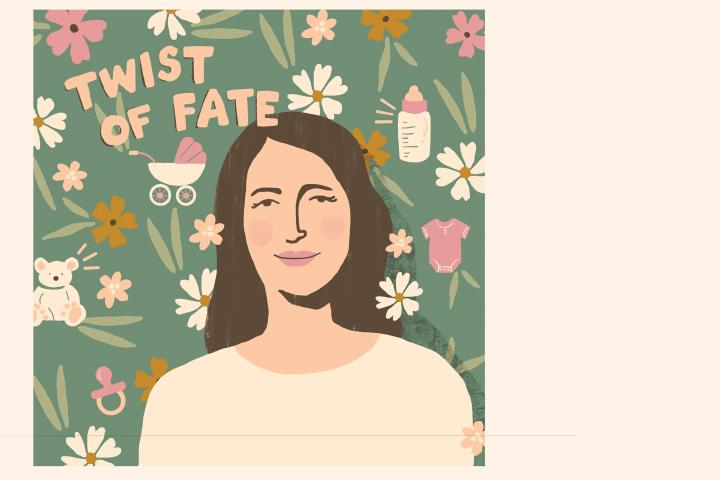Recognition, in the end, really means nothing,” Dr. Connie Eaves once said.
“It’s how good you feel about yourself. And the feedback you get from the people who are most important to you. It’s what’s important to you and whether you’ve done the best job that you can to make a contribution to that community.”
The contributions Dr. Eaves, BA’64, MSc’66, made to the community are immense. When she died in March in Vancouver, where she had worked for more than 50 years with BC Cancer Research, she had blazed a trail for women in science and technology and pioneered stem cell research techniques that became a global gold standard.
Also immense is the recognition. She was appointed as an officer of the Order of Canada, inducted into the Canadian Medical Hall of Fame, elected to the prestigious Royal Society, elected to the U.S. National Academy of Science, and honoured with the Canada Gairdner Wightman Award, reserved for a Canadian scientist showcasing scientific excellence and leadership, to name a few.
“My mother was a force of nature,” her son David Eaves, Artsci’98, said in an interview from England, where he teaches at University College London.
Constance Jean Halperin was born in Ottawa on May 22, 1944. Her father, Dr. Israel Halperin, was a brilliant Queen’s math professor, but young Connie dreamed of becoming a physician.
She was an excellent student, recalls her younger brother, Dr. Bill Halperin (Arts’67), an Orrington Lunt Professor of Physics at Northwestern University.
“She was intellectually competitive, of course, but not on a personal basis. Her interest in competitiveness was with herself,” Dr. Halperin says.
Connie had just graduated high school when Israel took the family to France, where he was on sabbatical. In Paris, she studied pre-medicine but, when the family returned to Canada a year later, she found medical schools were not a welcoming place for women.
Instead, she enrolled at Queen’s, studying chemistry. She completed her undergraduate and master’s degrees at Queen’s and found work in a research laboratory. It was there, hunched over a microscope, that she found her true calling, not in medicine, but in medical research.
“Science is about having a dream,” Dr. Eaves said when she accepted the Canada Gairdner Wightman Award in 2019. “You cannot discover something that you know about. Science is about chasing after something that you don’t know what it’s going to be. That’s what keeps you going forever.”
She was a woman who had purpose. She generated that purpose. She said, ‘This is what I want to do’ and she pursued it.
At Queen’s, she met her first husband, a physicist named Phil Gregory, with whom she would have two children, Neil and Rene.
Dr. Eaves went to England where she obtained her PhD in immunology at the University of Manchester, then returned to Canada to work in a cancer research lab at the University of Toronto. Among 50 scientists, she was the only woman.
“There was a sense that a woman shouldn’t be there, that a woman couldn’t do it,” she said in a 2019 interview for the International Society for Stem Cell Research. “You either look at that as a challenge and say, ‘I’m going to show them,’ or you’re dismayed and put down.”
Dr. Eaves chose to show them.
In 1973, she moved to Vancouver, where she was hired by BC Cancer Research. Her first marriage had ended and in Vancouver she worked alongside her second husband, Dr. Allen Eaves, with whom she had two more children, David and Sara. In 1981, the couple co-founded the Terry Fox Laboratory while Connie also worked as a professor of genetics at the University of British Columbia.
Stem cell research was her specialty, particularly in the field of bone marrow transplants, blood cancers, and treatments for breast cancer.
Dr. Eaves did not dwell on the lives her work may have saved, says David Eaves.
“She was quite philosophical about it. She would say, ‘Any treatment will have many contributors who made it possible. It’s not just me,’” he says. “She was really motivated by the uncovering and understanding of something genuinely new. She was more interested in the abstract – do we really understand this? – than in whether it was leading to a treatment. Not because she didn’t care, but because a better understanding of the basic science was the foundation upon which all treatments would ultimately be based. It was the most effective way she could contribute.”
In the cutthroat world of research, Dr. Eaves stood out as a mentor, fostering young careers.
“At the Terry Fox Lab, my mom worked hard to make it so that people weren’t in competition with one another, that they were supportive of one another,” David Eaves says.
That didn’t mean that Dr. Eaves wasn’t rigorous – relentless even – in her search for answers. A tribute to Dr. Eaves in the journal Experimental Hematology described her research as “ruthlessly quantitative.”
“Her pioneering research methodologies, including developing a technique to separate cancerous from normal stem cells, have become gold-standard approaches used in laboratories around the world,” BC Cancer said after Dr. Eaves’s death.
In his own tribute to his mother, David Eaves wrote that hundreds of students from around the world came to work with her in the lab. Many of them attended her memorial service in May at the University of British Columbia.
“I’m all about getting young people involved,” she told the audience at the Canada Gairdner Wightman Award gala. “They will teach you what you need to know. And they will tell you what you don’t want to hear.”
“She was a woman who had purpose,” says her brother, Dr. Halperin. “She generated that purpose. She said, ‘This is what I want to do’ and she pursued it. She was successful. She built on that success. She convinced others to profit from that success.”
Dr. Connie Eaves died March 7 from complications due to colon cancer. She was 79. She is survived by her husband, Allen, her children, Neil Gregory-Eaves, Rene Gregory-Eaves, David Eaves, and Sara Terry, and 11 grandchildren.


